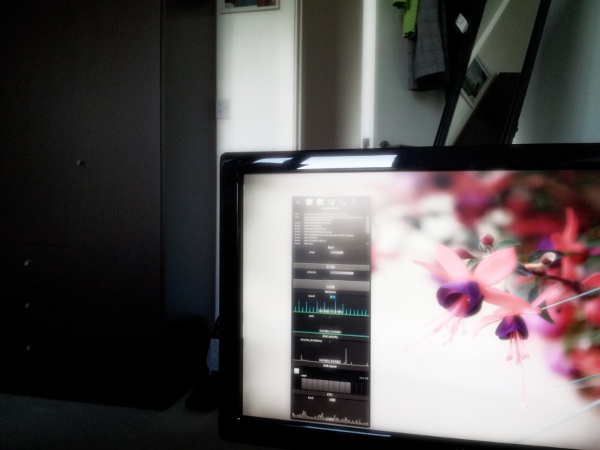

My wife's computer
EVERYONE in my family (parents, siblings) is using GNU/Linux or has used it in the past. It is not hard; Android is used by almost everyone, but on the desktop too I never really encountered serious support-related issues/questions. So this new article from Life Hacker [1] irked me somewhat. It basically shows some screenshots very selectively and pretends that with Windows there can never be technical challenges (let alone routine complications like viruses, fragmentation, bad patches, lack of software repositories, lack of functionality on the desktop, restarts, freezes and the list goes on and on). Based on my experience, people choose to switch to GNU/Linux because Windows becomes a big mess requiring a lot of technical support, not because they are after a platform which is more complicated and technical. The motivations are technical, not idealogical. My wife uses KDE with multiple desktops, a clipboard stack (through Klipper), bash terminals, and ssh. These are not too hard to grasp, it just takes a bit of adjustment. Those four features are not even basic features, and they aren't accommodated at all by Windows (in GNU/Linux these are all built in). There is one particular article [2] titled "Confessions of a 40 year old virgin". Published only a few days ago, the article explains what a new GNU/Linux user may have to go through. It's nothing too daunting. Slackware 14.1 was released some days ago [3] and it surely targets veteran users of GNU/Linux. It doesn't need to create a stereotype about the level of difficulty of GNU/Linux, which is basically a stack that suits everyone, provided a suitably simple/advanced desktop front end. Point Linux 2.2 is another distribution which has just come out [4] and it goes a long way in simplifying things; to quote the new review, "Point Linux gives you the ability to watch Flash videos (and play games) as well as listen to MP3s by default." When it comes to installing new software, it is so much easier than Windows. The ending words of this review say: "Whilst Synaptic isn't as glamourous looking as one of the many software centres out there it is incredibly functional and gives you full access to repositories." ⬆
In the end, Linux is great for a lot of things, even if you don't use it as your main OS. It's perfect for setting up a home theater PC without buying Windows, or reviving a super old machine. But if you want to really dig deeply and use it as your main operating system, just know that things are going to be a little different than Windows or OS X. For some, it's well worth the effort, but others may find that it's too much work for little payoff. The only way you can know is to try it out for yourself.
Well actually, to be more specific, I was a LINUX virgin who didn't know the difference between Ubunto (yes, in that spelling!) and Mint. And DarkDuck helped me to 'pop my cherry'. Now I think that I should stop with the lame sexual analogies before this gets downright weird.
[...]
DarkDuck, the owner of the above mentioned site, suggested that it was probably worth waiting for the latest version and I took his advice, opting for the 64-bit version. The disk arrived a couple of days after the release date for 13.10, and the installation was fast and painless. I found a few tips on the web about configuring the Firewall and so on and now the laptop is working again.
Yes, it is that time again! After well over a year of planning, development, and testing, the Slackware Linux Project is proud to announce the latest stable release of the longest running distribution of the Linux operating system, Slackware version 14.1!
Point Linux 2.2 is a welcome blast from the past with the way it looks. It reminds you of how good things were back when Gnome 2 was prominent.
The performance of Point Linux on the Toshiba Satellite Pro that I am using is excellent.
I didn't come across any issues whilst using Point Linux and the experience has been really good.
There is one thing I would like to add though. If I could go back to any point in time in my past then it would be either the 1970s or the 1980s.
I like the 1970s because in my head it would be like "Life on Mars" and I like the 1980s because I have lived through it once already and life seemed easier back then.
The truth is the reason why I would be happy back in the 1980s is because I know what happened and during my 1980s nothing bad happened.
The same can be said of Ubuntu back at version 10.04. I used it. I remember it well. It was great, it was stable and I really liked it and I know nothing bad happened whilst I used it.
Is that a good enough reason to go back in time?
Unity, Cinnamon, Gnome 3. They have all added something new and they are clearly the future of Linux. (Ok KDE as well, if you must).
Point Linux is like a time machine. It gives me back a really good operating system which works in a way I used to work. Do I still want to work that way? I am not quite sure.
Taking it on face value, Point Linux is a really nice operating system that performs well, is easy enough to navigate and has no real major issues. If that is what you need then it is well worth a shot.